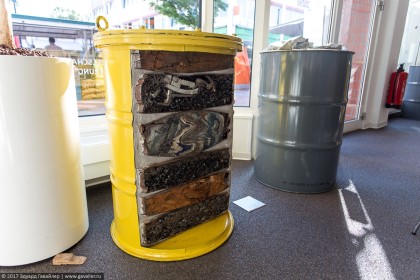Earlier this month, the AI-Driven Climate Smart Beekeeping for Women (AID-CSB) project held training workshops on the Beekeeper’s Companion app and relevant beekeeping practices. 20 women and 4 men beekeepers participated in hands-on training, practicing using the beta version of the app on demonstration hives. The app is still undergoing customizations based on beekeepers’ feedback and a free version will be shared with all Uzbek beekeepers in the near future.
The workshops were broken into 3 sections based on key features of the app: 1. - focuses on the the location of the apiary, including agroecology, local пђВora, and environmental factors, as well as the type of hive. 2. - planning apiary visits, timing of actions, and importance of community intelligence (or what is going on with other beekeepers in the area). 3. - evaluating individual hive status, needs, and actions.
For each topic, the beekeepers were provided beekeeping training, a tutorial on how to use the app for this topic, then practiced using the app on this topic with a demonstration hive.
Beekeepers’ reactions
After months of hearing about the app and participating in prototype testing, beekeepers were enthusiastic and vocal about receiving the app for the пђБrst time, which they say is the пђБrst digital technology for beekeepers in Uzbekistan.
One of the пђБrst components beekeepers provided feedback on was the language. An ongoing iterative process, the app is not only translated into the local language, but also adapted for the local beekeeping terminology using gender-inclusive translations.
Beekeepers are helping identify text within the app that still needs improvement, such as the types of bees locally available.
Experienced beekeepers also asked about complex functionalities, such as data on wind, air pressure and climate. The app provides beekeepers with local weather data and shows them a simple bee emoji when it is good weather to visit their hives. It also integrates other climate-speciпђБc data based on the local пђВora and fauna, such as readily available nectar sources.
Challenges & lessons learned
Naturally, developing and sharing a new technology for the пђБrst time comes with challenges, particularly as we work remotely across the globe and implement the project in two sites in Uzbekistan.
Since prototype testing in June, it has been a challenge to incorporate user feedback and desire for customization while still following our ambitious timeline to customize and launch the app this year. Additionally, whereas fully remote app launches enable more пђВexibility on deadlines, our decision to have an in-person event in September to integrate training and distribute smartphones to beekeepers tied us to a speciпђБc date which limited our agility to deal with last minute challenges, such as application download or translation challenges that will be resolved with the next update to the app.
Ongoing feedback & customization
Beekeepers were very engaged with lots of questions and feedback for the app. In addition to a Q&A session with HiveTracks during the workshop, beekeepers share their questions and comments on the app in a Telegram group. Based on this feedback, further iterations will be made to improve the app design and function before it is shared with the public in Uzbekistan for free download.















